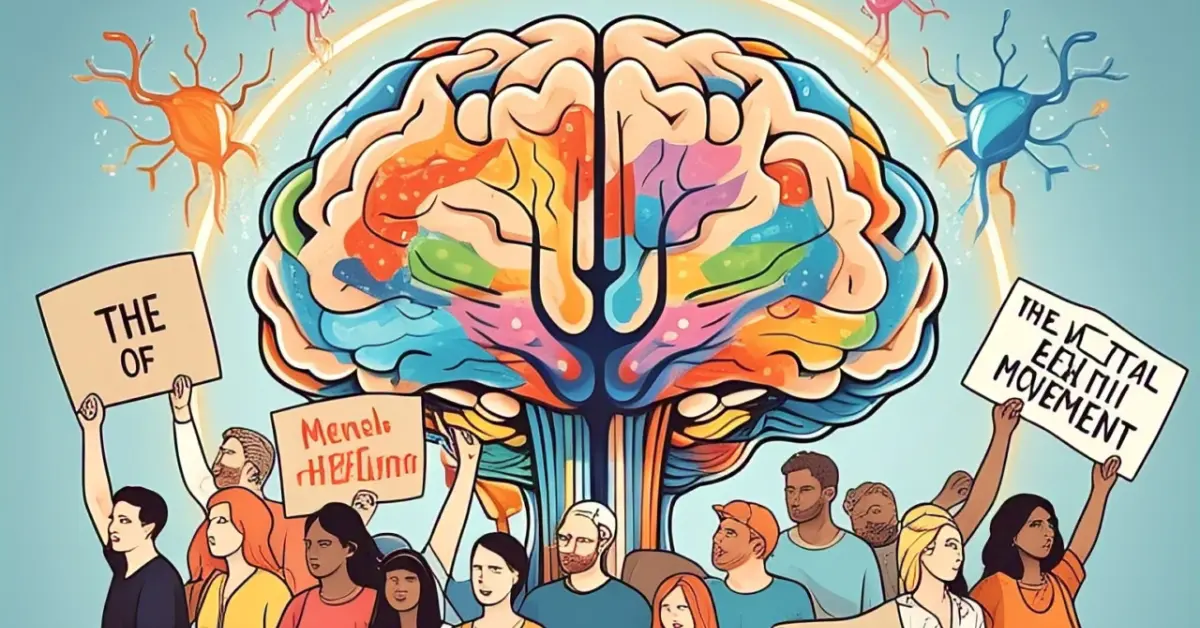Diet plays a vital role in your overall health and well-being, influencing everything from your energy levels to your mood. Understanding the science behind nutrition can empower you to make better food choices and enhance your dietary habits. In this post, you’ll discover evidence-based insights that will help you tailor your diet for optimal health, allowing you to maximize the benefits of the foods you eat. Get ready to learn how simple adjustments can lead to significant improvements in your daily life.
Understanding Nutrition Basics
The journey to optimizing your diet begins with a comprehensive understanding of nutrition. It is imperative to grasp the fundamental components that sustain your body and support your health goals. Knowledge of macronutrients, micronutrients, and the role of water in your diet can empower you to make informed choices that enhance your overall well-being.
Macronutrients: The Foundation of Your Diet
Basics of macronutrients revolve around three primary components: carbohydrates, proteins, and fats. Each of these plays a vital role in your diet, providing energy, supporting bodily functions, and contributing to overall health. Carbohydrates are your body’s main energy source, while proteins serve as building blocks for muscles and tissues. Fats, often misunderstood, are imperative for hormone production and nutrient absorption, making it important to choose healthy sources.
For a balanced diet, it’s important to understand how to allocate macronutrients effectively. Depending on your lifestyle and health objectives, the ideal ratio can vary. Paying attention to the quality of each macronutrient is just as significant as the quantity. Opting for whole foods rich in these nutrients can enhance your dietary experience and contribute to your overall well-being.
Micronutrients: Essential Vitamins and Minerals
Along with macronutrients, your body requires micronutrients, which include vitamins and minerals. These compounds, although needed in smaller amounts, play significant roles in various biochemical functions, supporting processes like immunity, bone health, and energy metabolism. A diverse diet rich in fruits, vegetables, whole grains, and lean proteins ensures that you are obtaining the required micronutrients to thrive.
Considering the diversity in food sources, it’s imperative to consume a wide variety of foods to meet your micronutrient needs. Each vitamin and mineral contributes uniquely to your health; for example, Vitamin C strengthens your immune system, while calcium is imperative for maintaining strong bones. Incorporating a colorful array of foods will not only enhance your nutritional intake but also keep your meals enjoyable and satisfying.
The Role of Water in a Balanced Diet
Vitamins and minerals can only perform optimally when your body is well-hydrated. Water plays a key role in digestion, nutrient transport, and temperature regulation. Staying adequately hydrated helps in maintaining your energy levels and supporting overall bodily functions. Incorporating sufficient water intake into your daily routine is an imperative part of sustaining your health.
A good guideline is to aim for around eight 8-ounce glasses of water per day, though individual needs may vary based on factors such as activity level and climate. Be mindful of how your hydration affects your energy and mood. Adding flavor to water with fruits or herbs can make the habit more enjoyable, encouraging you to drink more throughout the day.
The Science Behind Food Choices
There’s much more to your food choices than mere preference or taste. Psychological, cultural, and environmental factors all play a significant role in shaping what you decide to eat. By understanding these underlying components, you can make more informed decisions about your diet. Moreover, scientific research is increasingly delving into how specific foods impact your physical well-being and overall health, providing insights that can empower you to take control of your nutrition.
The Impact of Sugar on Health
Health experts continue to sound the alarm on the dangers of excessive sugar consumption. High sugar intake is linked to a variety of health issues, including obesity, type 2 diabetes, and heart disease. When you consume sugar, your body experiences a rapid spike in glucose levels, which can lead to a crash later on, leaving you feeling fatigued and craving more sugar. Such a cycle not only disrupts your energy balance but also contributes to emotional eating habits.
Additionally, sugar can increase inflammation in your body, potentially triggering chronic diseases over time. Recognizing the impact that sugar can have on your health enables you to make smarter choices, like opting for natural sweeteners or satisfying your sweet tooth with fruits that provide vitamins and fiber along with their sugars.
Fats: Good vs. Bad
Behind the discussions about dietary fats, you will find a complex landscape of information that can sometimes be misleading. Not all fats are created equal, as there are both beneficial and harmful types. Healthy fats—such as those found in avocados, nuts, and olive oil—are necessary for your body and can promote heart health, improve cholesterol levels, and even aid in nutrient absorption. On the other hand, trans fats and excessive saturated fats can negatively affect your health, increasing the risk of heart disease and other metabolic disorders.
Also, it’s important to discern the sources of fat in your diet. Whole food sources, like fatty fish rich in omega-3 fatty acids, offer significant health benefits compared to processed foods containing unhealthy trans fats. Being conscious of where your fats come from can help you maintain a balanced diet that harnesses the benefits of healthy fats while avoiding those that may harm your health.
The Truth About Carbohydrates
Between the myths surrounding carbohydrates and the reality of their role in your diet, you may feel confused about their impact. Carbohydrates are a primary source of energy for your body and play an necessary role in your overall health. However, not all carbohydrates are equal; the distinction between simple and complex carbs can significantly affect your energy levels and satiety. Simple carbohydrates, often found in sugary snacks and drinks, can lead to quick energy spikes followed by crashes. In contrast, complex carbohydrates—those found in whole grains, legumes, and vegetables—provide sustained energy and are packed with vital nutrients and fiber.
Fats can be good allies in your pursuit of balanced nutrition when combined with complex carbohydrates. When you choose whole food sources that offer both healthy fats and complex carbs, you can achieve better metabolic health and improved digestion. By opting for foods that complement each other, such as oatmeal topped with nuts or whole-grain toast with avocado, you can enjoy a more balanced and effective diet that serves your wellness goals.
Eating Patterns and Their Benefits
After exploring various diet options, you’ll find that certain eating patterns can significantly enhance your overall health and wellness. Each pattern offers unique benefits that cater to different dietary needs and lifestyles. Understanding these can empower you to make informed choices about your nutrition.
The Mediterranean Diet: A Model for Longevity
Patterns of eating, particularly the Mediterranean diet, are associated with longevity and heart health. This diet emphasizes whole foods, such as fruits, vegetables, whole grains, legumes, nuts, and healthy fats like olive oil. By incorporating these nutrient-dense foods, you can not only improve your overall health but also reduce the risk of chronic diseases, including heart disease and cancer.
Research consistently shows that adherence to the Mediterranean diet contributes to a longer, healthier life. This pattern encourages social connections through shared meals and emphasizes the enjoyment of food, promoting a holistic lifestyle that supports both physical and mental well-being.
Intermittent Fasting: Benefits and Considerations
Diet strategies like intermittent fasting involve cycling between periods of eating and fasting. This approach can aid in weight management, improve metabolic health, and promote cellular repair processes. You may find that setting specific windows for eating can help regulate your appetite and enhance your body’s ability to manage insulin levels effectively.
Due to the focus on when you eat rather than what you eat, intermittent fasting can adapt to your existing dietary preferences, making it a flexible approach. However, it’s crucial to ensure that your eating windows provide the necessary nutrients to maintain energy levels and overall health.
Plant-Based Diets: Nutritional Richness and Environmental Impact
Richness in vitamins, minerals, and antioxidants characterizes plant-based diets, which focus primarily on foods derived from plants. By incorporating a variety of fruits, vegetables, legumes, nuts, and whole grains into your meals, you can improve your nutritional intake while also supporting your health. A plant-based approach often leads to higher fiber consumption, which can enhance digestion and lower the risk of several diseases.
Considerations for adopting a plant-based diet include planning meals to ensure you’re meeting your nutritional needs, particularly for protein, iron, and vitamin B12. By being mindful of your food choices, you can enjoy a balanced diet that not only nourishes your body but also contributes positively to environmental sustainability through reduced carbon footprints and lower use of natural resources.
Psychological Aspects of Eating
For many people, eating is not just about sustenance; it can also be a complex interplay of emotions, habits, and social factors. Understanding the psychological aspects of eating can significantly help you optimize your diet and make healthier choices. By turning your attention to the mental and emotional triggers that influence your eating behaviors, you can take steps to cultivate a healthier relationship with food.
The Psychology of Food Cravings
Above all, food cravings can be understood as a response to a variety of stimuli, which may include emotional states, stress, or even environmental cues. You might find yourself reaching for that piece of chocolate cake when you’re feeling down, or wanting to snack mindlessly while watching your favorite show. Recognizing these patterns is the first step in gaining control over your cravings. By identifying the emotional and situational triggers that lead to these desires, you can start to develop healthier alternatives and coping mechanisms.
Mindful Eating: Techniques for Better Awareness
On the journey to optimizing your diet, incorporating mindful eating practices can be transformative. This approach encourages you to slow down and truly engage with your meals, providing you with a greater awareness of what you’re consuming and why. Techniques such as paying attention to the colors, textures, and flavors of your food, as well as taking smaller bites and chewing thoroughly can enhance your eating experience and foster appreciation for your meals.
Aspects of mindful eating involve tuning into your hunger signals and eating with intention. You can create a more positive relationship with food by observing how different foods make you feel physically and emotionally. Practicing gratitude before meals and eliminating distractions like screens can further deepen this awareness, allowing you to eat more consciously and enjoy your meals more fully.
The Influence of Stress on Eating Habits
Eating can often become a coping mechanism for stress, leading you to turn to food for comfort rather than nourishment. When you experience stress, your body floods with cortisol, a hormone that can trigger cravings for high-calorie, sugary foods. This reaction can create a cycle of emotional eating, where stress leads to unhealthy eating choices, which further exacerbate feelings of stress and guilt. Recognizing and addressing this cycle can be vital for maintaining a balanced diet and emotional well-being.
It is important to identify healthier ways to manage stress other than using food as a coping strategy. Engaging in physical activity, practicing relaxation techniques such as mindfulness or yoga, and finding support through friends or professionals can help you break the cycle and promote healthier eating habits, ultimately leading to a more balanced and enjoyable approach to food.
Meal Planning and Preparation
Once again, you will find that planning and preparation are key components in optimizing your diet. The act of organizing your meals ahead of time not only saves you time during the week but also helps you make healthier choices. When you take a moment to think about your meals, you have a chance to balance nutrients and ensure you are incorporating a variety of food groups, which can lead to better overall health.
Tips for Creating Balanced Meals
Beside purchasing ingredients, creating balanced meals involves mixing different food groups to meet your dietary needs. Aim for each meal to include a source of protein, healthy fats, and plenty of vegetables. Here are some quick tips to help you design balanced plates:
- Choose whole grains like quinoa or brown rice for complex carbohydrates.
- Incorporate a variety of proteins, from lean meats to legumes and nuts.
- Fill half your plate with vegetables, focusing on a colorful mix that brings different nutrients.
- Don’t forget healthy fats, such as avocados or olive oil, to help absorb vitamins.
Recognizing the importance of diversity in your meals can also enhance the taste and enjoyment of your diet.
Grocery Shopping Strategies for Healthy Eating
Tips for effective grocery shopping include making a list based on your meal plan and sticking to it, which can minimize impulse buys and ensure you purchase what you actually need. Shopping the perimeter of the grocery store is another good strategy; this area typically contains fresh produce, meats, and dairy, while the inner aisles often house more processed and convenience foods. To make your trip more efficient, consider visiting your local farmers’ market or joining a community-supported agriculture (CSA) program to get fresh, seasonal produce.
Understanding how to shop smart helps create a foundation for healthy eating habits. While shopping, it’s wise to pay attention to nutrition labels and ingredient lists to avoid products high in added sugars, sodium, and unhealthy fats. Additionally, shopping on a full stomach can help prevent impulse buys of unnecessary snacks.
Meal Prep: Time-Saving Techniques
On the topic of meal preparation, time-saving strategies can free up your week without compromising on nutrition. Consider dedicating a specific day to cook in batches, which allows you to prepare larger quantities that can be portioned out for the week ahead. Using tools such as slow cookers, instant pots, or sheet-pan dinners can also significantly reduce cooking time and cleanup, while ensuring you have nutritious meals ready to go.
Consequently, investing time upfront can lead to less stress during busy days, making it easier to stick with your meal plan when time is limited. You may also find it motivating to explore new recipes or meal ideas during your prep days, which keeps your diet fresh and enjoyable while promoting overall well-being.
Common Dietary Myths Debunked
Unlike popular belief, many dietary misconceptions can lead you to make choices that aren’t beneficial for your health. By addressing these myths, you can make informed decisions that help optimize your diet and overall well-being. Here, we debunk some of the most common myths surrounding nutrition.
Protein Myths: The Truth About Protein Intake
At the forefront of dietary myths is the notion that more protein always leads to better health outcomes. While it’s necessary to include protein in your diet to support muscle growth and restore tissues, the truth is that many people consume more protein than they actually need. The Recommended Dietary Allowance (RDA) for protein suggests that adults should aim for about 46 grams for women and 56 grams for men per day, depending on factors like age and activity level.
At the same time, different sources of protein can vary widely in their nutritional value. For example, while red meat is a rich protein source, it may also contain high levels of saturated fat. You might benefit more from diverse sources of protein such as legumes, nuts, seeds, fish, and poultry, which offer additional nutrients that can enhance your health while meeting your protein needs.
Gluten: Who Needs to Avoid It?
Around many dinner tables and health discussions, gluten is often singled out as a dietary villain. However, for the majority of people, gluten does not pose any health risks and can be part of a balanced diet. It’s important to differentiate between individuals with celiac disease or gluten sensitivity who must avoid gluten for health reasons, and those who choose to eliminate gluten without any medical necessity.
Around 1% of the population is affected by celiac disease, a serious autoimmune disorder where ingestion of gluten damages the small intestine. There are also individuals who experience non-celiac gluten sensitivity, leading to symptoms like bloating and fatigue after consuming gluten-containing foods. If you suspect gluten is affecting your health, it’s advisable to consult with a healthcare professional for proper testing and guidance.
About gluten, many people may still believe that gluten-free products are inherently healthier, but this isn’t always true. Many gluten-free alternatives can be highly processed and low in necessary nutrients, so it’s necessary to focus on a well-rounded diet rather than relying solely on gluten-free labels.
Detox Diets: What Science Says
Intake of detox diets has gained immense popularity, but much of the claims surrounding these diets are misleading. Advocates suggest that detox diets rid the body of toxins and promote weight loss. However, your body is naturally equipped with organs like the liver and kidneys that efficiently filter out waste products without any need for special diets. Instead, promoting a balanced diet rich in whole foods is more effective for maintaining health.
Intake of high-fiber foods, sufficient hydration, and a variety of fruits and vegetables can enhance your body’s innate detoxification processes, while detox diets may create unrealistic expectations for quick fixes. Relying on these overly restrictive diets can lead to nutritional deficiencies and an unhealthy relationship with food.
Even healthy choices can be turned against you if approached with the mindset of extreme restriction often promoted by detox diets. It’s important to focus on sustainable eating habits that nourish your body rather than short-term cleanses or restrictive diets that promise rapid results. Embracing a balanced and diverse diet will ultimately provide better health benefits without the stress of yo-yo dieting.
Special Considerations for Different Populations
Despite the general principles of healthy eating, certain populations may have specific nutritional needs that require tailored dietary strategies. In this section, you’ll find insights on how diets can be optimized for children, athletes, and older adults, ensuring that you and those you care about can benefit from the most appropriate nutritional guidance available. Understanding these unique requirements is key to helping individuals thrive at different life stages and activity levels.
Nutrition for Children: Building Healthy Habits
Populations that are in their formative years, like children, rely heavily on nutritious diets to support growth, brain development, and overall health. Fostering healthy habits early on can shape lifelong food preferences and behaviors. As a parent or caregiver, you’ll want to prioritize fruits, vegetables, whole grains, and lean proteins while minimizing the intake of added sugars and processed foods. Creating fun, engaging dining experiences will encourage your child to try new foods and develop a positive relationship with healthy eating.
Moreover, involving your children in meal planning and preparation can instill a sense of ownership over their food choices. Teaching them about nutrition in a simple and accessible way can help them understand the value of eating a balanced diet. You might consider making food a family affair by cooking together, exploring new recipes, and even visiting local farmers’ markets, which can be exciting and educational experiences for your children.
Dietary Needs for Athletes
Children engaged in sports or physical activities have unique dietary needs that must align with their energy expenditure and performance goals. Ensuring that you fuel their bodies with the right nutrients can enhance their athletic performance and recovery. A well-balanced diet that contains an adequate amount of carbohydrates, proteins, and fats plays a pivotal role in supporting their activity levels. Concentrating on nutrient-dense foods allows young athletes to maintain energy levels while optimizing their growth and development.
The quantity and timing of meals and snacks are also vital for athletes. Consuming a mix of carbohydrates and proteins before and after training can maximize energy levels and aid in muscle recovery. Educating young athletes about hydration and electrolyte balance is equally important, as fluid maintenance can significantly affect performance. Tailoring their diet to meet these needs not only helps them excel in their sports but also sets the foundation for lasting healthy habits.
Older Adults: Nutrition for Healthy Aging
Nutrition plays a significant role in promoting health and quality of life for older adults. As you age, your body’s metabolism changes, and nutritional needs may shift. A balanced diet rich in vitamins, minerals, fiber, and protein is crucial to maintain physical health, support cognitive function, and prevent chronic diseases. You should aim to incorporate a variety of colorful fruits and vegetables, whole grains, lean proteins, and healthy fats into your meals to achieve optimal health as you age.
Additionally, paying attention to hydration and the consumption of nutrient-dense foods becomes even more important. Oftentimes, older adults may experience decreased appetite or changes in taste and smell, leading to inadequate nutrient intake. Regular meal planning and scheduling can help you ensure that you’re getting the nourishment you need. Consider consulting with a healthcare professional or registered dietitian who specializes in geriatric nutrition to further tailor your dietary plan for healthy aging.
Older adults should also focus on maintaining muscle mass through adequate protein intake and engaging in regular physical activity, which can improve mobility and reduce the risk of falls. Understanding these dietary needs and making informed choices can lead to a more fulfilling and healthier lifestyle as you age.
Summing up
Conclusively, embracing the insights presented in ‘Eat Smart – Science-Backed Insights for Optimizing Your Diet’ empowers you with the knowledge needed to make informed dietary choices. By understanding the science behind nutrition, you equip yourself to integrate healthier foods into your daily habits, enhancing not only your physical well-being but also your mental health. With a focus on balanced meals, portion control, and the importance of nutrient density, you can optimize your diet in a sustainable way that fits your lifestyle.
Furthermore, adopting a mindful approach to eating allows you to cultivate a deeper connection with your food and your body’s needs. By paying attention to how different foods impact your energy levels and overall health, you can tailor your diet to suit your personal health goals effectively. As you continue on your journey to better nutrition, the insights from this guide will serve as valuable tools in creating a healthier, more vibrant life.



